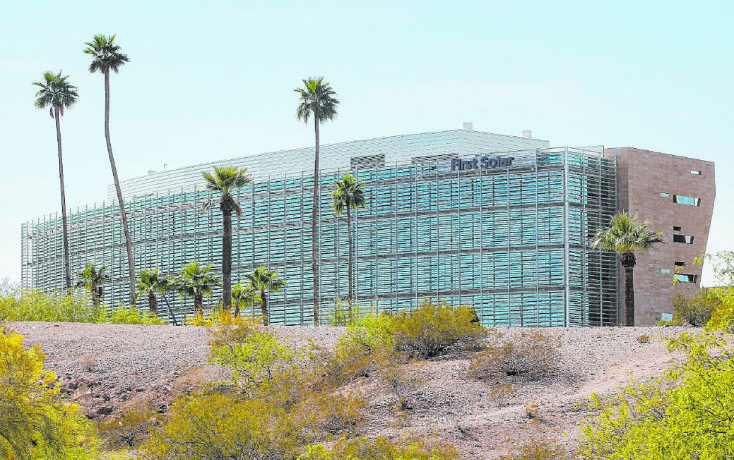
First Solar, based in Tempe, Ariz., could be the biggest beneficiary from the environmental spending enacted under the Inflation Reduction Act.
< 12px;">< 12px;">WASHINGTON — As he campaigned for the presidency, Joe Biden promised to spend billions of dollars to “save the world” from climate change. One of the largest players in the solar industry was ready.
< 12px;">< 12px;">Officials, board members and investors in First Solar, the largest domestic maker of solar panels, donated at least $1.5 million to Biden’s successful 2020 bid for the White House. After he won, the company spent $2.8 million more lobbying his administration and Congress, records show — an effort that included high-level meetings with administration officials.
< 12px;">< 12px;">The strategy was a departure from the Arizona-based company’s posture under then-President Donald Trump, whom corporate officials publicly called out as hostile toward renewable energy. It has also paid dividends as First Solar became perhaps the biggest beneficiary from $1 trillion in environmental spending enacted under the Inflation Reduction Act, which Biden signed into law in 2022 after it cleared Congress solely with Democratic votes.
< 12px;">< 12px;">Since then, First Solar’s stock price has doubled and its profits have soared thanks to new federal subsidies that could be worth up to $10 billion over a decade. The success has delivered a massive windfall to a small group of Democratic donors who invested heavily in the company.
< 12px;">< 12px;">Ahead of what’s shaping up to be a tight race for the White House this year, Biden and fellow Democrats point to the legislation as an example of investing in alternative energy in ways that willl help the environment and lift the economy. But First Solar offers an example of how that legislation, shaped by lobbyists and potentially influenced by a flood of campaign cash, can yield mammoth returns to the well-connected.
< 12px;">< 12px;">Angelo Fernández Hernández, a White House spokesperson, didn’t directly address First Solar’s efforts to curry favor with the Biden administration.
< 12px;">< 12px;">“President Biden has led and delivered on the most ambitious climate agenda in history,” Fernández Hernández said in a statement. “The White House regularly engages with industry leaders across all sectors, including clean energy manufacturers and gas and oil producers.”
< 12px;">< 12px;">In a statement, First Solar CEO Mark Widmar said the new subsidies have helped build the company’s domestic footprint. He took a swipe at some of First Solar’s rivals with ties to China, which dominates the industry.
< 12px;">< 12px;">“Unlike others who routinely spend substantially more lobbying on behalf of Chinese companies that circumvent U.S. laws and deepen strategic vulnerabilities, our interests lie in a diverse, competitive domestic solar manufacturing base supporting American jobs, economic value, and energy security,” Widmar said.
< 12px;">< 12px;"> Founded in 1999, First Solar went public in 2006, the year former Vice President Al Gore’s movie “An Inconvenient Truth” helped raise consciousness about the threat of climate change. Company officials cultivated a constituency with Democrats during President Barack Obama’s administration, which in turn subsidized them through billions of dollars in government-backed loans.
< 12px;">< 12px;">When the Biden administration started writing rules to implement the Democrats’ new law, First Solar executives and lobbyists met at least four times in late 2022 and 2023 with administration officials, including John Podesta, who oversaw the measure’s environmental provisions.
< 12px;">< 12px;">The company will benefit from billions of dollars in lucrative tax credits for domestic clean energy manufacturers — a policy aimed at putting the U.S. on a more competitive footing with green energy giant China. Though intended to reward clean-energy businesses, the credits can be sold on the open market to companies that have little to do with fighting climate change.
< 12px;">< 12px;"> Last December, First Solar agreed to sell roughly $650 million of these credits to a tech company — providing a massive influx of cash, courtesy of the U.S. government.
< 12px;">< 12px;">Investors in the company, including a handful of major Democratic donors, have also benefited as First Solar’s share price climbed.

